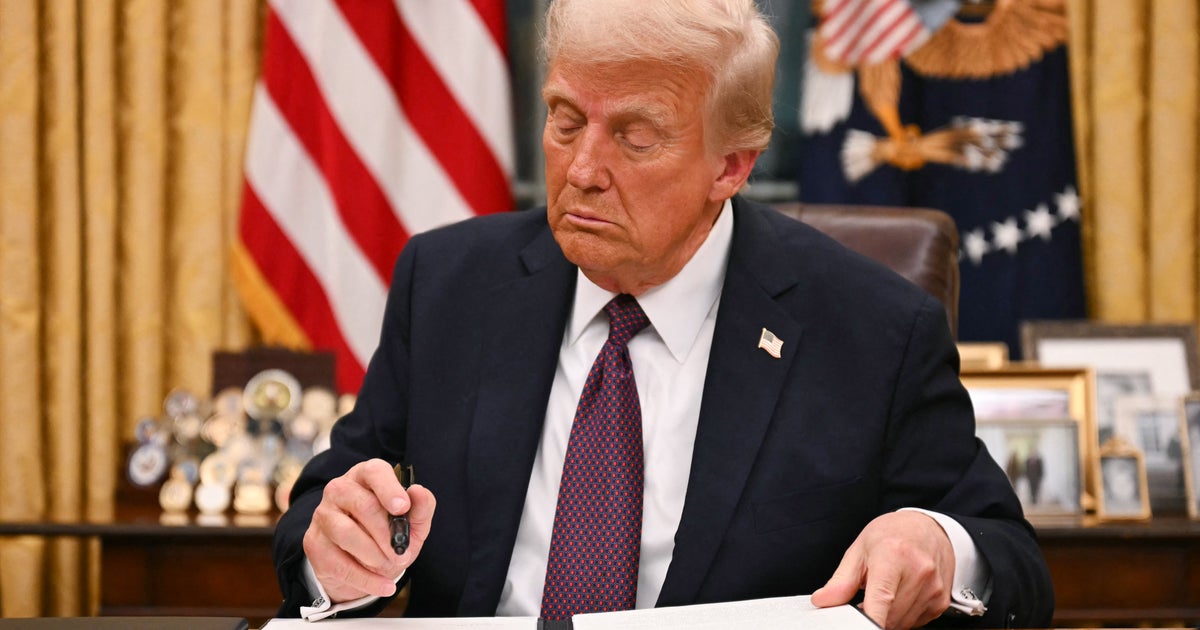Potential Trump Policy: Limiting Legal Recourse For Detained Migrants

Table of Contents
Proposed Restrictions on Legal Challenges
This section details specific potential policy changes that could severely restrict legal challenges available to detained migrants. These restrictions could fundamentally alter the landscape of immigration law and significantly impact the rights of those detained.
-
Limitations on habeas corpus petitions: Habeas corpus, a fundamental right, allows individuals to challenge the legality of their detention. Limiting access to this writ would drastically reduce avenues for challenging unlawful imprisonment. This could lead to prolonged detention without proper legal review, potentially violating due process rights. The potential for abuse is significant, particularly given the already strained capacity of immigration courts.
-
Restrictions on class-action lawsuits against detention facilities: Class-action lawsuits are crucial for addressing systemic issues of abuse and neglect within detention centers. Restricting these actions would leave individual migrants isolated in their struggles against inhumane conditions, making it harder to expose and rectify widespread problems. This could allow systemic human rights violations to continue unchecked.
-
Reduced access to pro bono legal representation: Many detained migrants rely on pro bono legal services from non-profit organizations and legal aid societies. Restricting access to these vital resources would leave numerous migrants without adequate legal representation, placing them at a significant disadvantage in navigating the complex immigration system. This disproportionately impacts those who cannot afford legal counsel.
-
Increased barriers to filing asylum claims: Making it harder to file asylum claims—through increased documentation requirements, stricter timelines, or limited access to asylum officers—would directly violate international human rights law and the principle of non-refoulement. This would leave vulnerable individuals at risk of deportation to countries where they face persecution.
-
Shortened deadlines for legal challenges: Reducing the time available to file appeals or legal challenges would create an unfair and rushed system, leaving little opportunity for adequate legal representation and review. This would greatly increase the chances of wrongful deportation and deny migrants their right to a fair hearing.
The legal basis for such restrictions would likely be debated extensively. Opponents would argue that these limitations violate established legal precedents and international human rights standards. Proponents might cite concerns about efficiency and national security, but a careful consideration of the potential consequences is critical. Restricting legal avenues could ironically lead to increased case backlogs and appeals as migrants seek alternative ways to challenge unjust detentions.
Impact on Due Process and Fair Treatment
Limiting legal recourse for detained migrants directly undermines fundamental due process rights guaranteed under both domestic and international law. The consequences are far-reaching and deeply troubling.
-
Increased risk of wrongful detention: Without adequate legal avenues for redress, individuals could be wrongfully detained for extended periods, potentially for minor infractions or even based on mistaken identity. This not only violates fundamental rights but also strains resources and leads to injustice.
-
Potential for human rights abuses in detention centers: Reduced legal oversight creates an environment where human rights abuses within detention centers are more likely to go unchecked. Detainees might experience inhumane conditions, violence, or medical neglect without an effective means of seeking legal intervention.
-
Difficulty in challenging inhumane treatment or conditions: Limited access to courts makes it exceedingly difficult for migrants to challenge inhumane treatment, inadequate medical care, or other violations of their basic rights while in detention. This silence emboldens abusive practices.
-
Limited ability to appeal deportation orders: Restricting appeals against deportation orders leaves migrants with little recourse against potentially unjust decisions. This can lead to the separation of families and the deportation of individuals to dangerous situations.
-
Erosion of trust in the legal system among migrant communities: The perception of injustice fosters distrust in the legal system, creating a climate of fear and discouraging cooperation with authorities. This can lead to a breakdown of trust between the government and vulnerable communities.
International human rights law, particularly the Universal Declaration of Human Rights and the International Covenant on Civil and Political Rights, guarantees the right to a fair trial and protection against arbitrary detention. Limiting legal recourse for detained migrants directly contradicts these fundamental principles and will likely draw increased scrutiny from international human rights organizations.
Ethical and Humanitarian Concerns
The ethical and humanitarian implications of limiting legal recourse are profound, challenging core American values of due process and fairness. The potential for abuse and suffering is immense.
-
Potential for exploitation and abuse of vulnerable individuals: Migrants in detention are particularly vulnerable to exploitation and abuse. Restricting legal recourse exacerbates this vulnerability, leaving them with few options to protect themselves from harm.
-
Violation of the principle of non-refoulement: This principle prohibits the return of individuals to countries where they face persecution. Restricting asylum claims effectively violates non-refoulement and exposes vulnerable individuals to serious harm.
-
Disproportionate impact on asylum seekers and refugees: Asylum seekers and refugees are often fleeing persecution and violence. Restricting their access to legal assistance disproportionately harms this already vulnerable group, leaving them more exposed to danger.
-
Impact on family separation and reunification processes: Limiting legal resources can severely hinder family reunification efforts, forcing families to endure prolonged separation and increasing the psychological trauma experienced by children and parents.
-
Contradictions with American values of due process and fairness: The proposed restrictions directly contradict long-standing American values of due process and fairness. They undermine the principles of justice and equality upon which the country was founded.
Human rights organizations and legal scholars overwhelmingly condemn such policies as unjust and inhumane. The long-term societal consequences of such measures extend far beyond the immediate impact on individual migrants and could severely damage the country's international reputation.
Political and Social Ramifications
Limiting legal recourse for detained migrants carries significant political and social ramifications, extending beyond the immediate impact on the affected individuals.
-
Public opinion and political polarization surrounding immigration issues: Such a policy is likely to fuel existing political divisions and intensify public debate on immigration. It could further polarize public opinion and hinder constructive dialogue on immigration reform.
-
The role of the media in shaping public perception: The media plays a crucial role in shaping public perception of the issue. Negative coverage of human rights abuses resulting from restricted legal access could generate public backlash and harm the government's image.
-
Potential for increased civil unrest and protests: The policy could trigger widespread protests and civil unrest, particularly among immigrant communities and human rights advocates. This could lead to social instability and further complicate already strained relationships between different segments of the population.
-
International relations and diplomatic consequences: The policy could damage the U.S.'s international standing and relationships with other countries. International criticism and sanctions are possible.
-
Long-term implications for the immigration system: The policy could lead to a further erosion of trust in the immigration system, making it even harder to address systemic issues and achieve meaningful reform. It may also create long-term legal challenges and increased litigation.
Advocacy groups are likely to mobilize significant opposition to such policies, and the potential economic consequences of restricting access to legal recourse (e.g., increased costs associated with prolonged detention) should also be carefully considered.
Conclusion
The potential policy of limiting legal recourse for detained migrants raises significant concerns about due process, human rights, and the overall fairness of the immigration system. Restricting access to legal challenges could lead to wrongful detentions, human rights abuses, and erode public trust. Understanding the potential ramifications of such a policy is crucial for informed debate and advocacy. We must continue to advocate for policies that uphold due process and ensure fair treatment for all, regardless of immigration status. The potential consequences of limiting legal recourse for detained migrants demand careful consideration and a commitment to upholding fundamental human rights. We need continued discussion and engagement to protect the rights of vulnerable individuals within the immigration system. Let's work together to prevent the implementation of policies that violate fundamental human rights and ensure access to justice for all.

Featured Posts
-
 High Stock Market Valuations Bof A Explains Why Investors Shouldnt Panic
May 10, 2025
High Stock Market Valuations Bof A Explains Why Investors Shouldnt Panic
May 10, 2025 -
 Police Officer Saves Choking Toddler Bodycam Footage Shows Dramatic Rescue
May 10, 2025
Police Officer Saves Choking Toddler Bodycam Footage Shows Dramatic Rescue
May 10, 2025 -
 Elon Musk Remains Worlds Richest Despite 100 Billion Net Worth Loss Hurun Global Rich List 2025
May 10, 2025
Elon Musk Remains Worlds Richest Despite 100 Billion Net Worth Loss Hurun Global Rich List 2025
May 10, 2025 -
 40 Palantir Stock Growth By 2025 A Realistic Investment Opportunity
May 10, 2025
40 Palantir Stock Growth By 2025 A Realistic Investment Opportunity
May 10, 2025 -
 4 5
May 10, 2025
4 5
May 10, 2025
